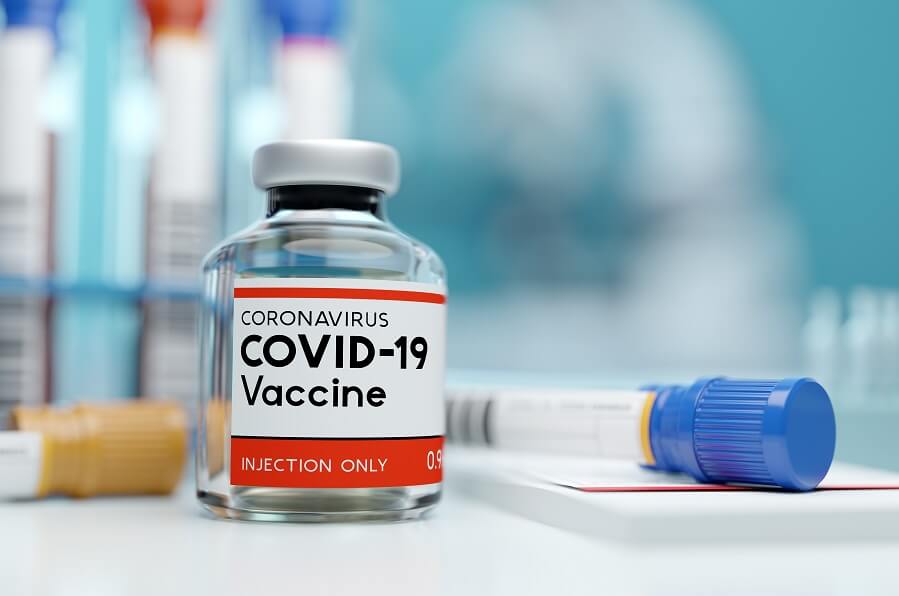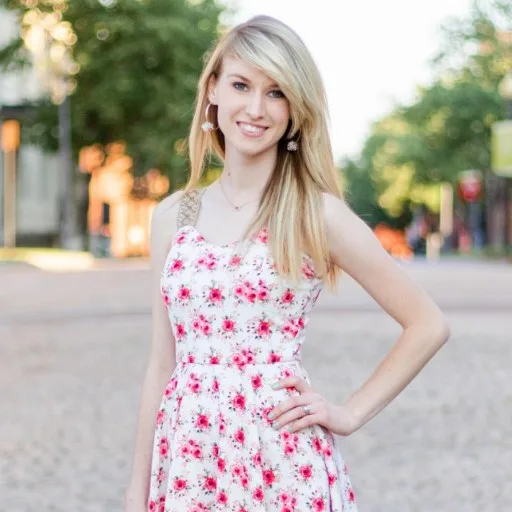
Dr. Zan Zaidi at Novant Health in Manassas joined panelists for a discussion about the COVID-19 vaccine.
MANASSAS – “We have just emerged from four of the worst months since the pandemic started,” Dr. Zan Zaidi said. “We have seen higher cases, hospitalizations and deaths than at any time before it.”
That’s how the doctor, who practices at Novant Health in Manassas, opened his remarks Tuesday night. Dr. Zaidi took part in an online forum created to answer questions for the Latinx community concerning COVID-19.
Novant Health UVA Health System, in partnership with Todos Supermarket, Primera Iglesia Bautista Maranatha, Prince William Chamber Hispanic Council and Telemundo 44, made the virtual event possible.
In the one hour and 15-minute Hispanic-Latino Community Townhall session, Zaidi and other health professionals gave presentations, dispelled myths, presented facts and answered questions.
While most of the session took place in Spanish, portions took place in English. An interpreter also translated each question viewers asked in both languages.
Zaidi spoke openly about COVID-19’s impact on the Latinx community and about the positive role of vaccinations.
A Needed COVID-19 Vaccine
The doctor gave several reasons why he recommended getting the COVID-19 vaccine.
He first noted approximately six weeks of important, significant declines in case numbers and hospitalizations. He projected a period within a matter of months where life could start to feel like normal again.
“We believe strongly that the decisions we make in the next two or three months can lead to a summer and fall where life really starts to feel the way it did before the pandemic,” Zaidi said.
The doctor called vaccinations the best tool to prevent sickness and death from COVID-19.
On severity, Zaidi noted that the Hispanic and Latinx communities were more likely to get seriously ill from the coronavirus and go to the hospital.
“And they’re more likely to die than nearly any other race or ethnicity,” Zaidi said.
Through the doctor’s research, he found that 21% of Americans between the ages of 35 and 44 identified as Hispanic. Out of the number of deaths in that age group, the Hispanic population accounted for 46%.
Even at his own hospital, Zaidi often treated multiple members of the same Hispanic families for COVID-19.
Statistics also revealed that COVID-19 disproportionately affected the youngest members of the two communities.
“COVID-19 is just one of the most recent reminders of how much health inequity we still have in our community,” Zaidi said. “But we believe that vaccination is a very special opportunity to level the playing filed for all races, all ethnicities and to provide something that provides the same outcome to all – particularly those that were so tragically affected.”
Vaccine Safety
A concern that crosses all race and ethnicity lines focuses on the safety of the COVID-19 vaccine. Zaidi spoke about that, presenting facts and dispelling rumors.
“One of the questions I get regularly, and my team gets, is about the speed with which the vaccines were developed and whether or not they are safe,” Zaidi said. “And we can resoundingly say that these vaccines are all safe, and that there are good reasons for why these vaccines were developed so quickly.”
The doctor noted that most of the research actually took place one or two decades prior to the global outbreak. Once COVID-19 hit, the world experienced what Zaidi called “unprecedented collaboration” from scientists, companies and governments. The vaccine production effort also received financial support. Those factors together made the rapid production possible.
“Many of the steps that were previously done in sequence were done in parallel,” Zaidi said. “For example, they actually started manufacturing before the trials were completed so that they could reach the endpoint sooner in the event that it was proved safe at the end.”
The doctor expressed that no compromises in safety, process, or authorization occurred for any of the three approved COVID-19 vaccines.
How the COVID-19 Vaccine Protects
Dr. Zaidi noted that the Pfizer, Moderna, and Johnson & Johnson vaccines all had similar ways of triggering or provoking the immune system.
The vaccine protects inoculated individuals by instructing their cells to create the same spike protein pattern associated with the coronavirus. If a vaccinated person comes into contact with COVID-19, their body will recognize the virus and fight against it.
The three companies producing the approved vaccines each performed trials on diverse populations.
“All three vaccines had very high rates of participation in the trials from people of Hispanic or Latinx origin,” Zaidi said.
The doctor also addressed a common misconception about the way the vaccine works. He said that it is impossible to get the virus from the vaccine.
Virus Variants
The culmination of Zaidi’s presentation focused on variants of the COVID-19 vaccine.
The Centers for Disease Control and Prevention lists three concerning variations of the novel coronavirus. They originated in the United Kingdom, South Africa, and Brazil. They seem to spread more easily and quickly than other variants, which may lead to more cases of COVID-19.
“Viruses like this mutate constantly,” Zaidi said. “This is not a surprise to any of us.”
The vaccines appear to prevent the most serious complications of COVID – both the variants and the novel coronavirus. Zaidi called that finding “reassuring.”
Even with the vaccine now available, Zaidi still encouraged wearing a face mask and practicing social distancing.
“In combination with vaccination, this is our best way of protecting ourselves and the ones we love in the next few months,” Zaidi said.
Amie Knowles reports for Dogwood. You can reach her at [email protected]
Support Our Cause
Thank you for taking the time to read our work. Before you go, we hope you'll consider supporting our values-driven journalism, which has always strived to make clear what's really at stake for Virginians and our future.
Since day one, our goal here at Dogwood has always been to empower people across the commonwealth with fact-based news and information. We believe that when people are armed with knowledge about what's happening in their local, state, and federal governments—including who is working on their behalf and who is actively trying to block efforts aimed at improving the daily lives of Virginia families—they will be inspired to become civically engaged.


VIDEO: Your support matters!
Your support matters! Donate today. @vadogwoodnews Your support matters! Visit our link in bio to donate today. #virginianews #virginia #community...

Op-Ed: Virginia’s new Democratic majorities pass key bills to improve your lives, but will Youngkin sign them?
The 2024 Virginia General Assembly regular session has wrapped up. It was a peculiar session from the outset, with Democratic majorities in the...

Op-Ed: Why Virginia Needs A Constitutional Amendment Protecting Reproductive Freedom
Virginia’s recent election season in 2023 drew in eyes from all over the country. Reproductive freedom was on the line and Virginia remained the...

From the state rock to the state flower, here’s how Virginia got its symbols
Have you ever wondered why the Dogwood is the state flower? Or how the cardinal became the state bird? We’re here to answer those questions and more...

VIDEO: Second-gentleman Douglas Emhoff gives speech on reproductive freedom
Second gentleman, Douglas Emhoff touched on reproductive freedom not only being a woman's issue but "an everyone's issue" during the Biden-Harris...

Glenn Youngkin and the terrible, horrible, no good, very bad night
Election Day 2023 has come and gone, and while there are votes to be counted, one thing is perfectly clear: Virginians unequivocally rejected Gov....





